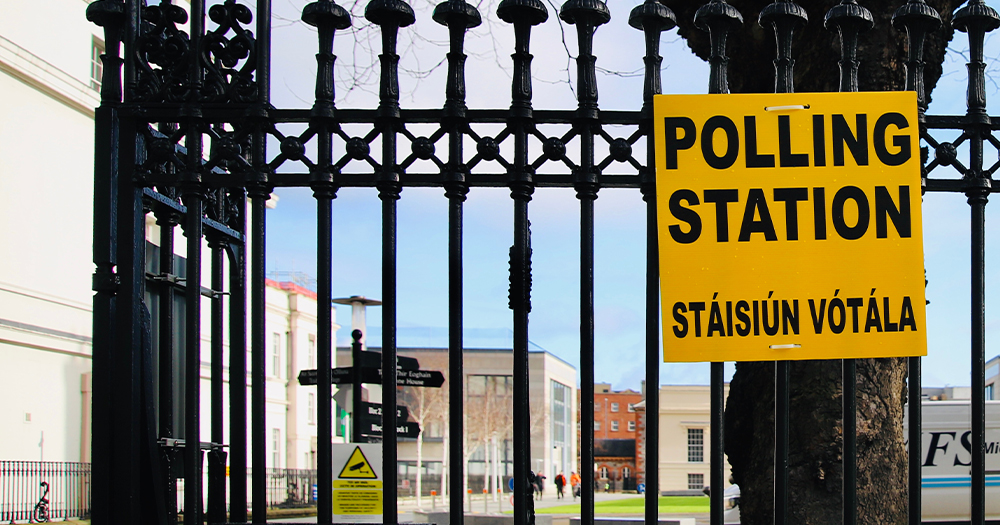On Friday, November 29, thousands of polling stations have opened across Ireland as voting began for the 2024 General Election. Voters are called to cast their ballots to elect the new TDs in the 34th Dáil.
Polling stations around the country opened this morning at 7am and will close at 10pm. People who are in the door by 10pm will be allowed to vote even after the polls close. The location of each voter’s polling station will be written on their polling card.
People who have not received their polling card will still be able to vote as long as they are registered to do so. You can check if you are registered on this website. For details about your polling station, check with your local council.
Be sure to bring identification documents with you when you go to cast your vote, as well as your polling card if you have received one. At the ballots, voters can list the candidates in order of preference and vote for as many as they like. Do not write anything else on the ballot paper to avoid spoiling your vote.
Further information on accessibility for voters with a disability is available here.
A total of 689 candidates are running in the 2024 General Election. No single party has enough candidates to be able to win a majority on its own in the next Dáil.
According to The Irish Times, Fine Gael, Sinn Féin and Fianna Fáil are neck and neck in the polls. However, a surge in late voter registrations might add unpredictability to the outcome.
To help voters make informed choices, each political manifesto has been reviewed to understand the parties’ commitments to advancing LGBTQ+ rights and well-being in Ireland. This followed the launch of the first-ever sector-wide LGBTQ+ manifesto, spearheaded by a coalition of 18 prominent Irish organisations.
The LGBTQ+ manifesto outlines five key priorities:
– Strengthening LGBTQ+ Rights: Full legal equality, banning conversion therapy, and updating the Equality Act.
– Investing in LGBTQ+ Health: Inclusive healthcare for trans individuals, improved mental health services, and reduced waiting times.
– Implementing LGBTQ+ Inclusive Education: Anti-bullying measures, resources for LGBTQ+ students and staff, and training for educators.
– Tackling Hate Speech: Enacting robust legislation and developing a national action plan.
– Supporting LGBTQ+ Communities: Expanding community services and supports across all counties.
For a summary of how each party aligns with the #VoteWithPride manifesto, check out this article or the infographic below.
View this post on Instagram
Another useful tool to help voters choose the candidates that best represent them is WhichCandidate. This tool was first introduced in 2014 and has since become a feature of elections in Ireland. Developed by a team based at the University of Limerick, it invites voters to answer a set of questions and see which candidates best align with their values.
© 2024 GCN (Gay Community News). All rights reserved.
Support GCN
GCN is a free, vital resource for Ireland’s LGBTQ+ community since 1988.
GCN is a trading name of National LGBT Federation CLG, a registered charity - Charity Number: 20034580.
GCN relies on the generous support of the community and allies to sustain the crucial work that we do. Producing GCN is costly, and, in an industry which has been hugely impacted by rising costs, we need your support to help sustain and grow this vital resource.
Supporting GCN for as little as €1.99 per month will help us continue our work as Ireland’s free, independent LGBTQ+ media.
